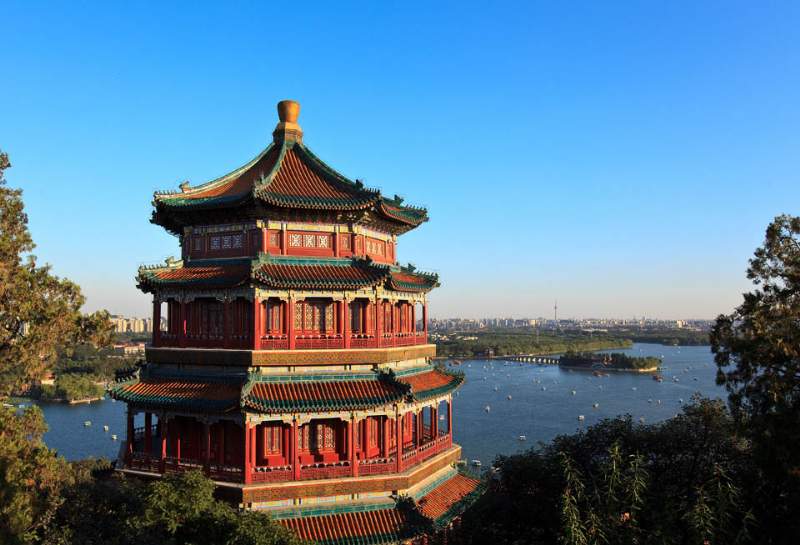For its 3rd edition, the UNESCO Creative Cities Beijing Summit, co-organized by UNESCO and the city of Beijing, will be held from 17 to 18 September 2020, under the theme ‘Creativity empowers cities, technology creates the future’. ON LINE HERE >>
The Summit will gather a diverse set of urban stakeholders, including mayors and local policymakers, high-level representatives from UN agencies, as well as experts and entrepreneurs, to undertake an in-depth reflection on how to shape new urban development patterns building on culture, creativity and new technologies, beyond the COVID-19 crisis.
In the face of the COVID-19 pandemic and its multifaceted impact on urban life, cities around the world have adapted and demonstrated creativity and innovation to devise appropriate and effective solutions.
Beyond providing essential public services to city dwellers and mitigating the direct effects of the crisis, the increasing use of emerging technologies and their applications has led cities to explore how creativity and innovation can improve urban management, towards building the sustainable cities of tomorrow.
Following the first two editions, successfully co-organized by UNESCO and the city of Beijing in 2013 and 2016, this year’s Summit will build on Beijing’s strengths in science and technology, to call further for creativity and innovation in and for cities, as well as promote culture’s role to bolster sustainable urban development.
This two-day event will also be the occasion of launching the UNESCO e-publication entitled ‘UNESCO Creative Cities’ Response to Covid-19’, which showcases good urban practices from Creative Cities highlighting the power of culture and creativity in response to the crisis.
Due to the unprecedented situation, the Summit will follow a hybrid format, combining the physical presence of representatives based in China and the online participation of speakers from other countries.
The event will be broadcasted live through the dedicated event website, with simultaneous interpretation in English and Chinese.
The COVID-19 pandemic has greatly affected all the aspects of urban life – economically, socially and environmentally – compelling cities around the world to adapt and demonstrate creativity and innovation to devise appropriate and effective solutions to this unprecedented situation.
In order to better respond to the multifaceted impact of this crisis, and continue to provide essential public services to city dwellers, cities around the world have mobilized their creative and technological assets and talents, devising a wide range of measures and actions experienced during the COVID-19 pandemic.
As part of their proactive response, cities have transformed culture and arts into digital experiences, as well as leveraged design components and cutting-edge technology to protect the health and safety of their inhabitants, while developing and democratizing remote education and learning for all generations.
Beyond mitigating the direct effects of the crisis, the increasing use of emerging technologies and science has led cities to explore how creativity and innovation can improve urban management, with a view to building the sustainable cities of tomorrow. To implement UN’s 2030 Agenda for Sustainable Development and more particularly SDG 11 to ‘Make cities and human settlements inclusive, safe, resilient and sustainable’, there is an imperative need to shape long-term strategies to allow for a smooth digital transformation based on innovative thinking.
In this context and in line with the UNESCO’s transversal approach to cities and urban development, the UNESCO Creative Cities Network (UCCN) has served as a collaborative platform for its 246 member cities from over 80 countries, with the aim of boosting sustainable urban development powered by creativity and innovation and improving the overall life quality of their citizens.
Successfully co-organized by UNESCO and the city of Beijing – a UNESCO Creative City of Design – in 2013 and 2016, the first two editions of the UNESCO Creative Cities Beijing Summit cemented the event as a regular platform for Creative Cities to exchange their experiences and expertise as well as collectively reflect on how to best strengthen sustainability in urban development. This year, building on Beijing’s strengths in science and technology, which is supported in particular by its vibrant new technology companies including sector leaders and innovative start-ups, the third UNESCO Creative Cities Beijing Summit aims to call further for creativity and innovation in and for cities, as well as promote culture’s driving role for sustainable urban development.
Under the theme ‘Creativity empowers cities, technology creates the future’, the third Beijing Summit will provide an international platform for discussion and networking, bringing together a diverse set of different urban stakeholders, including Mayors and policymakers, representatives from UN agencies, academics and experts, as well as innovators and entrepreneurs. With a special focus on the digital economy, the Summit will explore how culture, creativity, and technology can help to improve urban management and nurture the sustainable cities of tomorrow across different development dimensions.
In the recently published ‘UN Secretary General’s Policy Brief on COVID-19 in an Urban World’, Mr António Guterres emphasizes that ‘ensuring that innovation is integral to the design, planning and management of cities has multiple benefits’. Since the beginning of the COVID-19 outbreak, the UNESCO Creative Cities have been mobilized to further reinforce solidarity and collaboration within the Network and beyond. More than ever, the power of creativity and innovation should be fully supported to cope with the evolving situation, and reinforce ties between people and communities in the post coronavirus era, where new urban management systems and models underpinned by culture and empowered by creativity will rise to respond to contemporary urban challenges and opportunities.
Fonte: UNESCO.org

